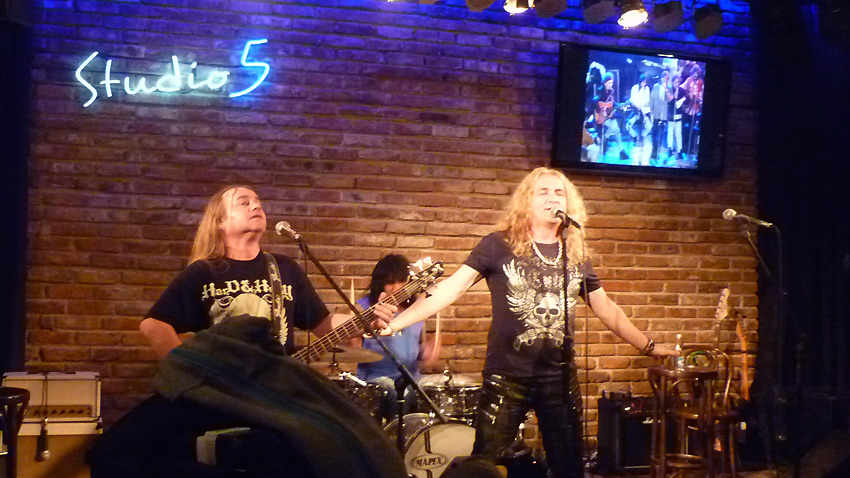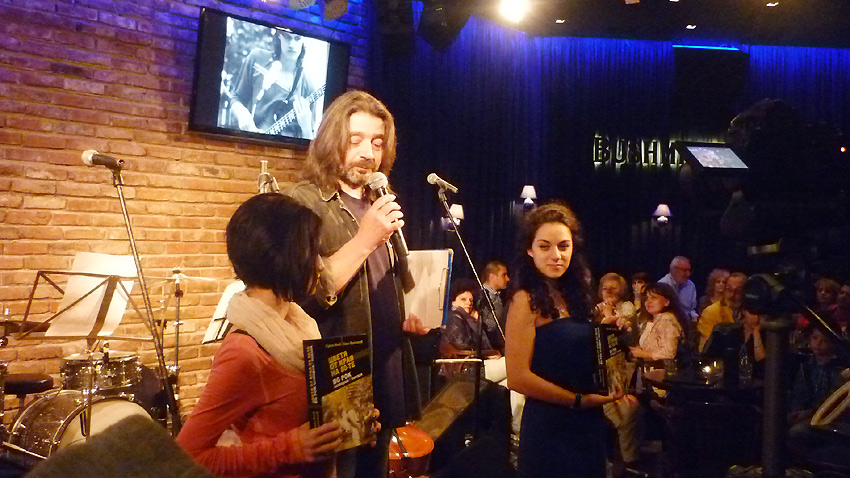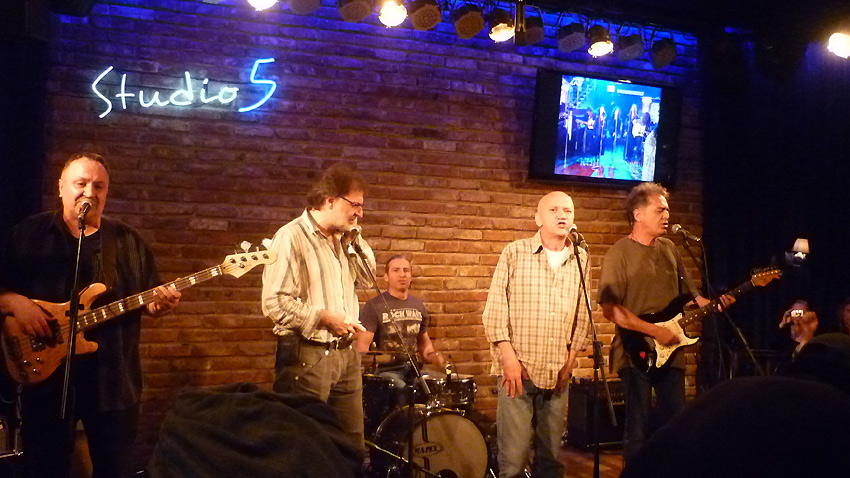The songs performed by Ahat, Review, Kontrol, Jendema, New Generation, Konkurent, Atlas, Klas, Subdibula and many rock and new wave bands were part of the daily round of many Bulgarians during the transition period from socialism to democracy. “These bands could hardly be compared to cultivated flowers. They rather resembled weeds, wild and natural, bright and provocative. They irritated everyone who was taught to conform to old habits”, the introduction of the book entitled Flowers of the Late 1980s reads. This exceptional book was presented several days ago at the traditional 20th Salon of Arts in Studio 5 Club at the National Palace of Culture in Sofia which turned into a rock party with the participation of legendary Bulgarian rock bands and musicians. The book was published and edited by Dorotea Mоnova who was one of the founders of Rhythm magazine back in 1987. Rhythm was the first youth magazine in the totalitarian period which gave a tribune to informal youth rock bands in this country.

“My old friends Rumen Yanev and Emil Bratanov wrote this book. Both of them are associated with the Bulgarian National Radio and many other Bulgarian media. On the one hand, this book was written by people who shared the same view. On the other, it was written by Bulgarians who lived during the communist period. Initially our idea was to collect popular texts and pieces. Later, we realized that they had to be accompanied by rich illustrations. Finally we decided that it was not enough and we had to write several paragraphs about the period itself, the groups that performed these pieces and the ones who wrote the music to these songs. We worked on the idea for four whole years”, Dorotea Monova explainеd.
The first history of Bulgarian rock music from the late 1980’s, described by the authors of the book as the Second Bulgarian Rock Generation, consists of around 270 photographs and over 200 emblematic texts; stories, verses, interviews and memoirs of people who participated actively in those interesting, dynamic and crucial events of the period known as the Transition Period. But who were these flowers? In Doroteya Monova’s words, these flowers were all Bulgarian boys and girls who created the so-called counter-culture with guitars in their hands.
“The Flowers of Change are some of the most-beautiful things in our latest history. The second Bulgarian rock generation passed clearly and unambiguously the sentence on the totalitarian system. This generation is inextricably bound up with the political and social changes in Bulgaria which occurred at the end of the 20th century. This generation defended its right of personal freedom and dignity. It passed its courage onto its coevals, so they could rise against their fathers’ regime. These young musicians and poets left behind dozens of songs which sound convincing even nowadays. We never though these texts would keep their eternal meaning over the past 20 years”, Mrs. Monova said.
Is Bulgarian rock going to sound as influential as in the 1980s?
“Ventsi Drenikov from Subdibula Band who made the presentation of the book said something sad. In his view, rock music will become modern again when Bulgarian people realize that they failed to win their freedom and start again to fight for their old ideas. At the end of 1989 the authorities decided to return our freedom. Paradoxically, the fall of socialism was accompanied with a collapse of the romantic ideals. The illusions were over and we stepped deeply into commercialism. However, this is not the story I would like to tell”, Mrs. Monova said.

Flowers from the Late 1980s published by Paradox publishing house is a rock chronicle of the most important events that happened in Bulgaria between 1987 and 1990. It won a series of honorary awards of the Bulgarian Book Association for most significant publisher’s project and publisher’s project of biggest public significance in 2014.

English version: Kostadin Atanasov
Photos: Snezhana NikoforovaDays of Bulgarian culture will be organized in Madrid between November 9 and December 31, 2024, BTA reported, citing Latinka Hinkova, president of the Association of Bulgarians and Artists "TREBOL" and head of two Bulgarian Sunday schools in Torrejon de..
The national awakeners of Bulgaria are the individuals for whom we feel not only gratitude and admiration, but also perceive as some of the most significant figures in our history, because they awaken our sense of national togetherness. However, what is..
People with mental disabilities will share their unique perspective on Sofia's architectural heritage in the photographic exhibition "Architectural Stories from Old Sofia". It will be opened on November 1 in the Cultural Space of the Central Sofia Market..
Days of Bulgarian culture will be organized in Madrid between November 9 and December 31, 2024, BTA reported, citing Latinka Hinkova, president of the..

+359 2 9336 661
